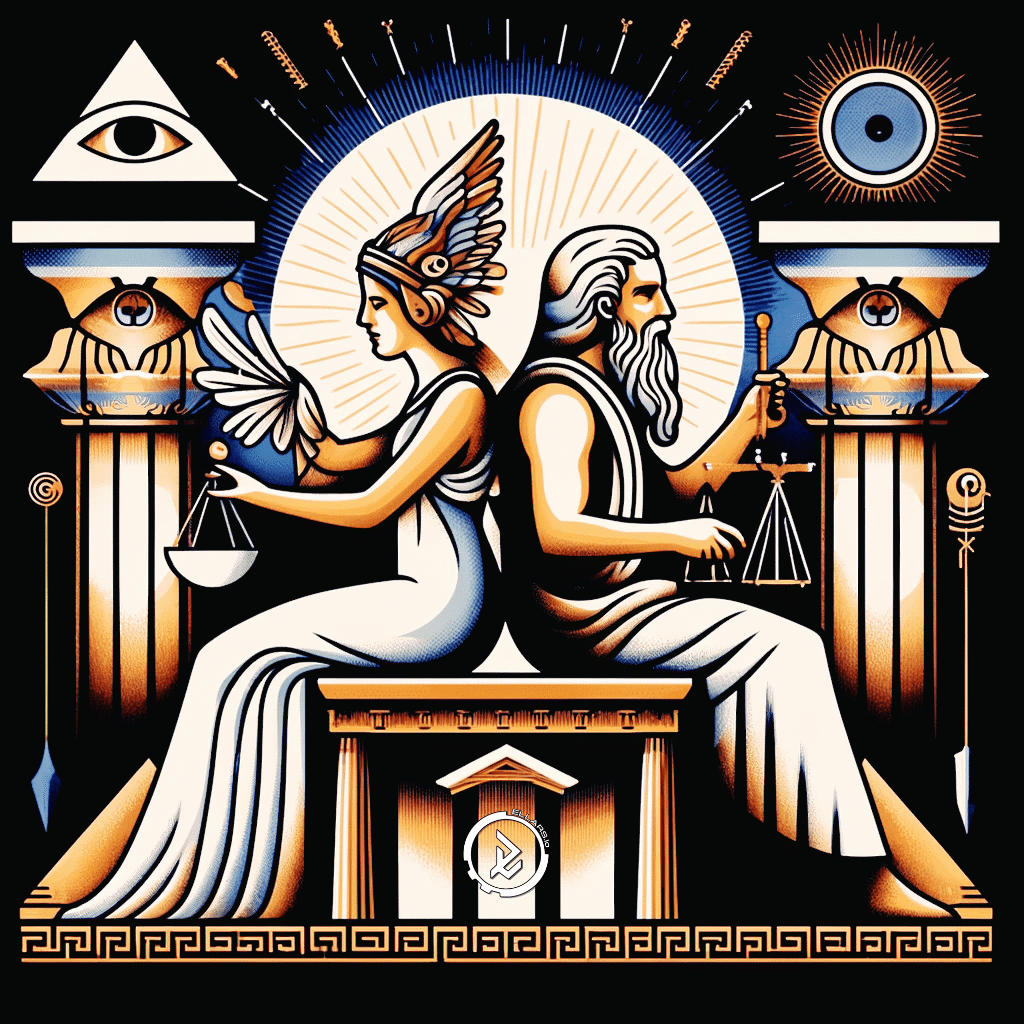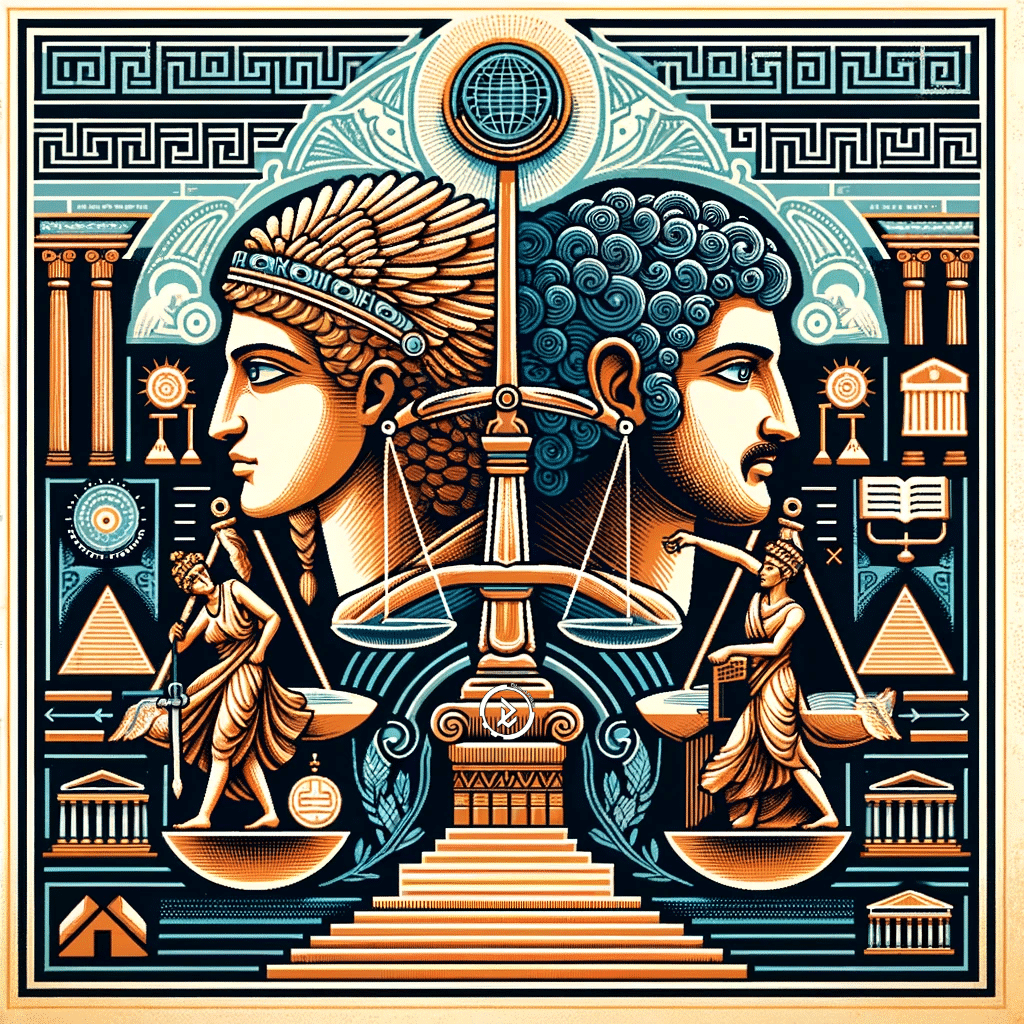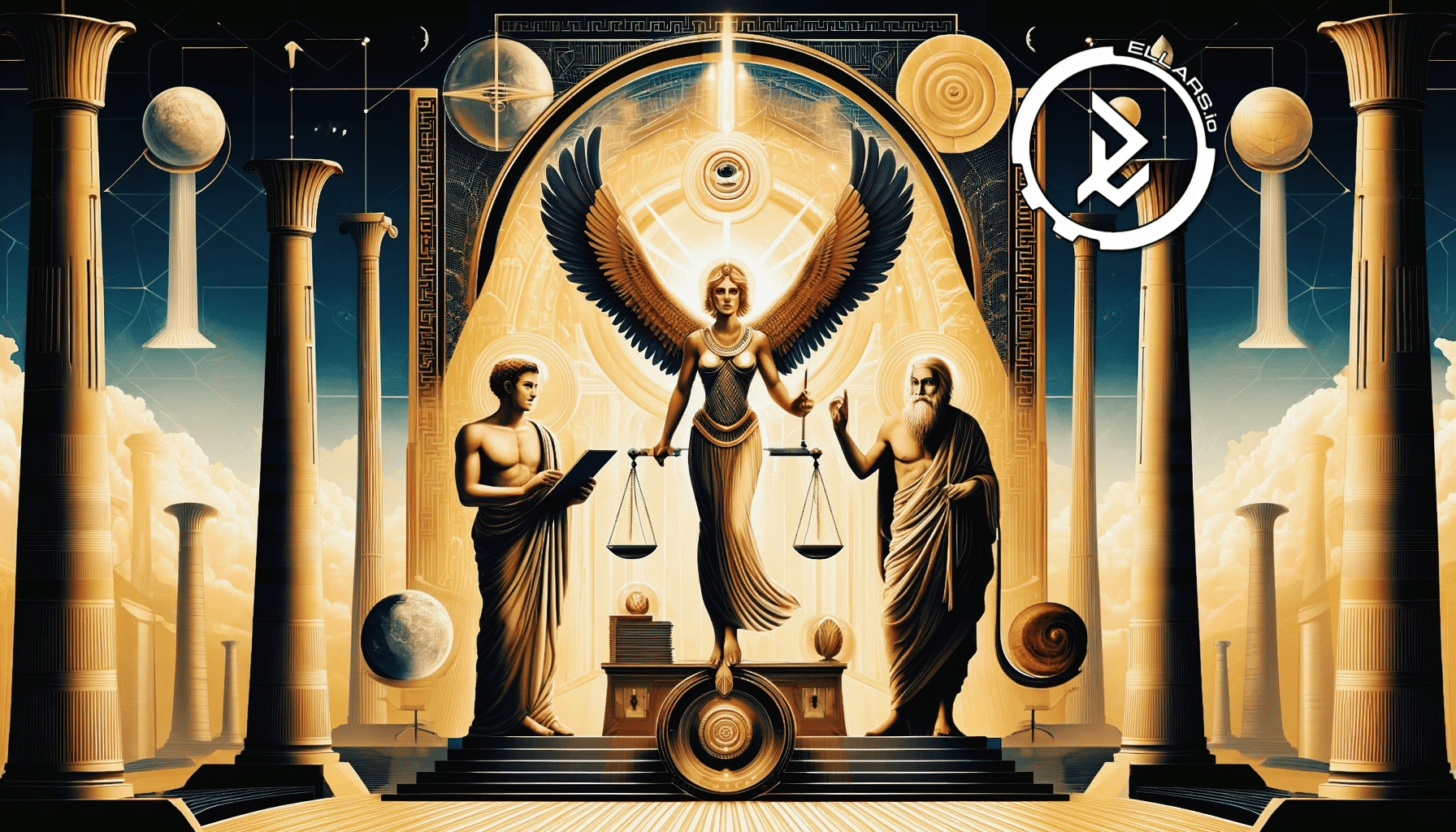The ancient Egyptian concept of Maat, embodying truth, justice, and cosmic order, has intriguing parallels with the philosophical works of Plato and Aristotle. These connections illustrate how fundamental ideas about morality, justice, and the nature of the universe can transcend cultural boundaries and historical periods.
Maat and Plato
Plato, one of the most influential philosophers in Western thought, often explored themes that resonate with the principles of Maat. His works reflect a profound concern for justice, truth, and the ideal order of society.
1. The Republic
In “The Republic,” Plato envisions an ideal state where justice (dikaiosyne) is paramount. This concept is similar to Maat’s role in maintaining cosmic and societal order. Plato’s idea of justice involves each part of the state fulfilling its appropriate role, mirroring Maat’s principle of balance and harmony. Just as Maat ensures that every element in the universe operates in its rightful place, Plato’s ideal state requires every individual to contribute according to their abilities and virtues.
2. The Allegory of the Cave
Plato’s Allegory of the Cave, found in “The Republic,” also echoes Maat’s emphasis on truth. The allegory describes prisoners in a cave who mistake shadows on the wall for reality. One prisoner escapes and discovers the true world outside, representing the philosopher’s journey towards knowledge and enlightenment. This pursuit of truth and the importance of understanding the deeper reality aligns with Maat’s principles of recognizing and adhering to the truth.

3. The Theory of Forms
Plato’s Theory of Forms posits that the material world is a shadow of a higher, immutable reality. The Forms represent the true essence of things, much like Maat represents the ideal state of truth and order. Plato’s belief in an unchanging reality behind the physical world parallels Maat’s role as the eternal, unchanging principle that sustains the cosmos.
Maat and Aristotle
Aristotle, a student of Plato, also explored themes that reflect the teachings of Maat. His works delve into ethics, justice, and the natural order, offering insights that resonate with Maat’s principles.

1. Nicomachean Ethics
In “Nicomachean Ethics,” Aristotle examines the concept of virtue and the good life. He argues that living virtuously means achieving a balance between extremes, a concept known as the “Golden Mean.” This idea of balance and moderation is akin to Maat’s principle of harmony. Just as Maat represents the balance between order and chaos, Aristotle’s ethics emphasize the importance of maintaining a balanced and virtuous life.
2. Politics
Aristotle’s “Politics” discusses the organization of society and the role of justice. He asserts that justice is the foundation of the political community, reflecting Maat’s central role in maintaining societal order. Aristotle’s vision of a just society, where laws are applied fairly and rulers govern for the common good, parallels Maat’s function in ensuring that laws and rulers uphold cosmic and social harmony.
3. The Concept of Natural Order
Aristotle’s belief in a natural order, where everything has its purpose and place, is reminiscent of Maat’s role in the universe. Aristotle’s idea that the universe is governed by natural laws and that understanding these laws leads to a harmonious existence mirrors Maat’s principles of order and balance. For Aristotle, recognizing and adhering to the natural order is essential for achieving a just and stable society, much like adhering to Maat is essential for maintaining cosmic balance.
Conclusion
The connections between Maat and the philosophies of Plato and Aristotle highlight the universal nature of certain ethical and metaphysical principles. Both Greek philosophers explored ideas of justice, truth, and order that resonate with the ancient Egyptian concept of Maat. Plato’s ideal state and pursuit of truth, along with Aristotle’s ethics and natural order, reflect teachings that echo the timeless principles of Maat. These parallels demonstrate how different cultures and thinkers have grappled with similar fundamental questions about the nature of justice and the best way to live a virtuous and balanced life.

- All
- Articles
- Book Summary
- Mental Health
- Politics
- Religion, Spirituality & Mythology
- Social Media
- Technology
- tweet
- Video Games
- Web3 Gaming



